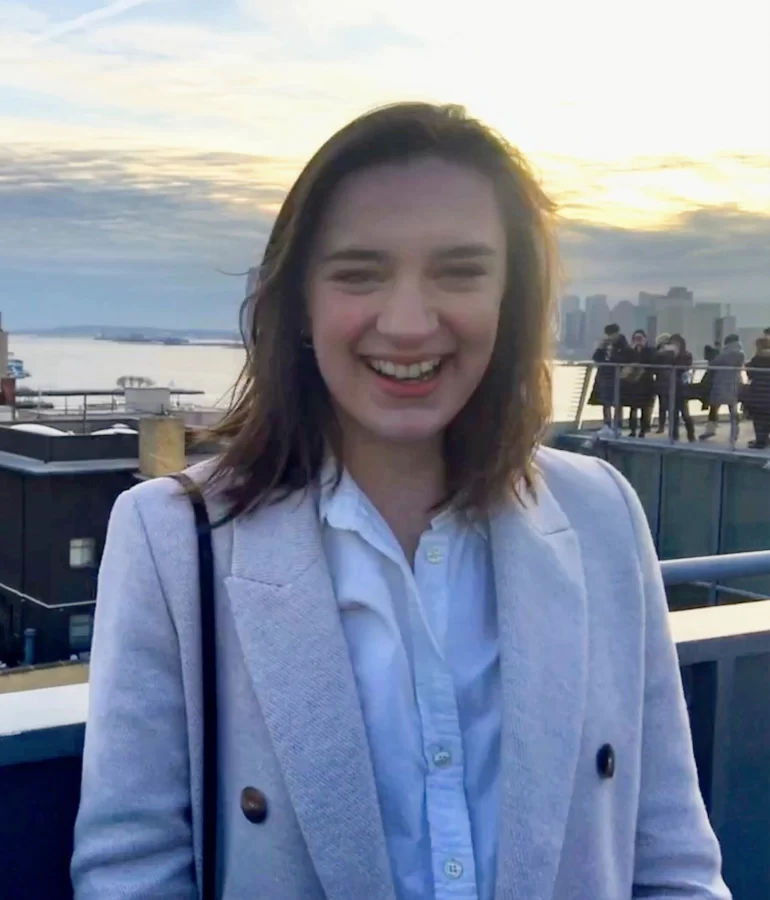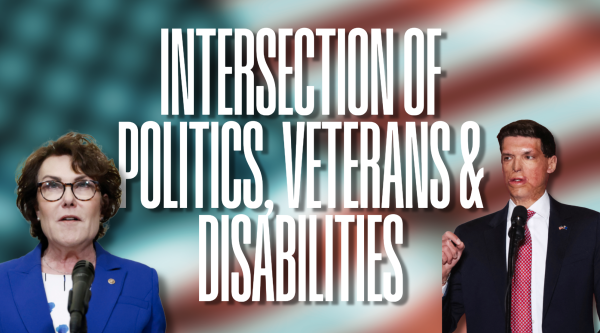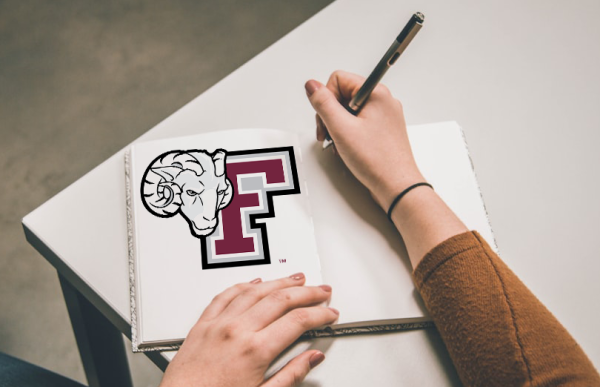Fordham Senior Marries Music and Neuroscience in Research
Everyday, students walk to class with their headphones in, listening to their favorite songs. Lizzy Galbo, FCRH ’22, is researching how this music affects human perception. Galbo is double-majoring in integrative neuroscience and music on the pre-health track and combines these two disciplines in her research.
Galbo is currently participating in Dr. Elissa Aminoff’s vision and memory lab, which focuses more on visual processing. For Galbo’s required capstone project for her neuroscience major, she and Aminoff introduced the stimuli of music into the lab.
“The project I’m working on is called ‘Musically Induced Microbalances in High-Level Visual Processing of Everyday Scenes,’” said Galbo. “But really what we’re looking at is how small musical excerpts could produce a mindset that will affect how much you like or dislike a neutral image or scene that would otherwise not evoke an emotion.”
For this project, Galbo is writing her own musical compositions that vary in certain musical features, which will then act as the stimuli in the experiment. Nathan Lincoln-DeCusatis, Ph.D., of the music department is advising Galbo for the music side of the research.
Galbo said that being able to combine her two majors for this capstone project “has been really unique and awesome.”
Galbo came to college considering a future in either medicine or scientific research, so completing research as an undergraduate student has always been something that she wanted to pursue while at Fordham.
“I really just wanted to get into a lab and understand the research process,” said Galbo. “So I kind of just cold-emailed Dr. Aminoff because I found her research on perception and mindset super interesting … I didn’t know what cognitive neuroscience was before getting into her lab, so it’s been really awesome to understand that aspect of neuroscience beyond the biological things that I’ve learned in classes.”
Galbo has been a musician for much of her life and is also a classically trained singer. When she decided to include a musical element in her research, Galbo had to ask herself questions like “how do you scientifically study music?” and “how do you use music as a variable in research?”
Galbo said exploring the answers to these questions has been a really enlightening process for her.
“As a performer, I’ve had so many experiences where I have felt these whole-body emotions and responses to sounds, so [I thought] it must affect perception,” she explained.
This examination of cross-modal processing between visual and auditory processing could have interesting implications, said Galbo. Even though Galbo only varies small features of the music in her research, she thinks that this could affect both the field of perception and the musical field.
In many perception experiments, perception is analyzed in an MRI with no outside stimuli, explained Galbo. “But that’s not reality,” she said. “We’re listening to all sorts of things all of the time.”
It is important to understand the significance of other stimuli. For the musical field, she believes this research attempts to understand why people prefer certain things in music over others and how this affects their perception. Galbo thinks these ideas could be important for composers, who could be able to take these kinds of things into account when they are writing music.
Currently, Galbo is on track to go to medical school, but she said she still wants to work with music and integrate it into medicine. She would also like to earn her master’s degree in music cognition and is applying for a Fulbright Fellowship for a music and science program at Durham University.
“I feel like that would be a really interesting aspect to introduce into medicine,” said Galbo. “There’s a lot of music therapy treatments that exist, and music psychology is a big field … but if I understand the underlying cognitive mechanisms that regulate our perception of music … we could understand not just how we can use music but what in the music is useful … and how we can better our therapies that already exist.”















































































































































































































